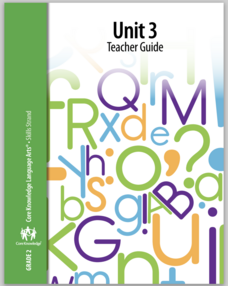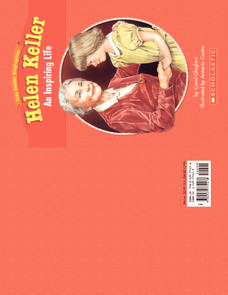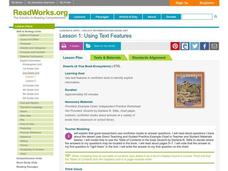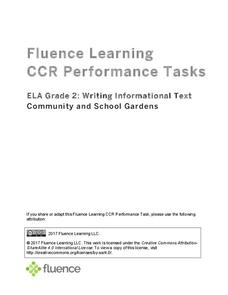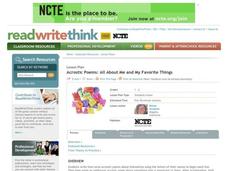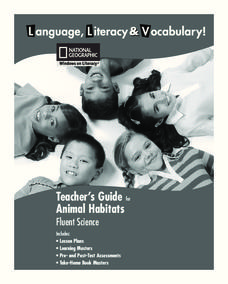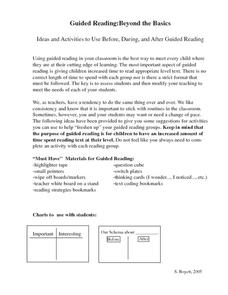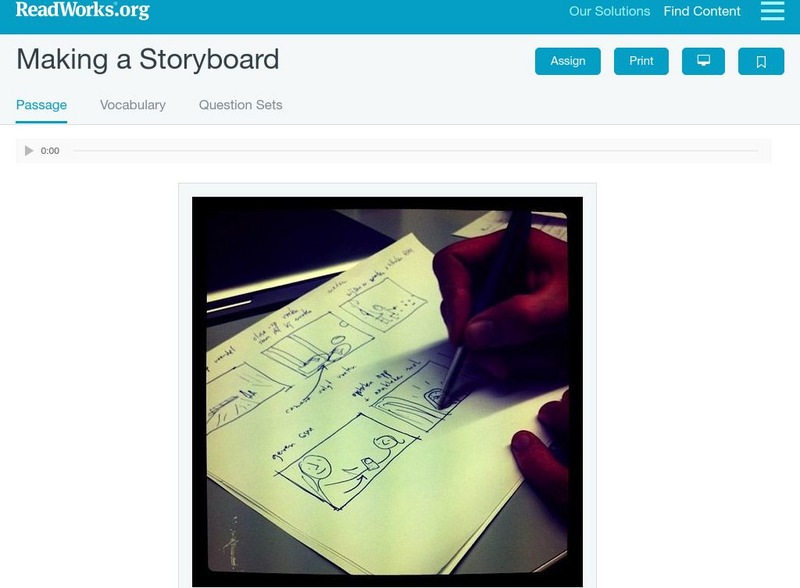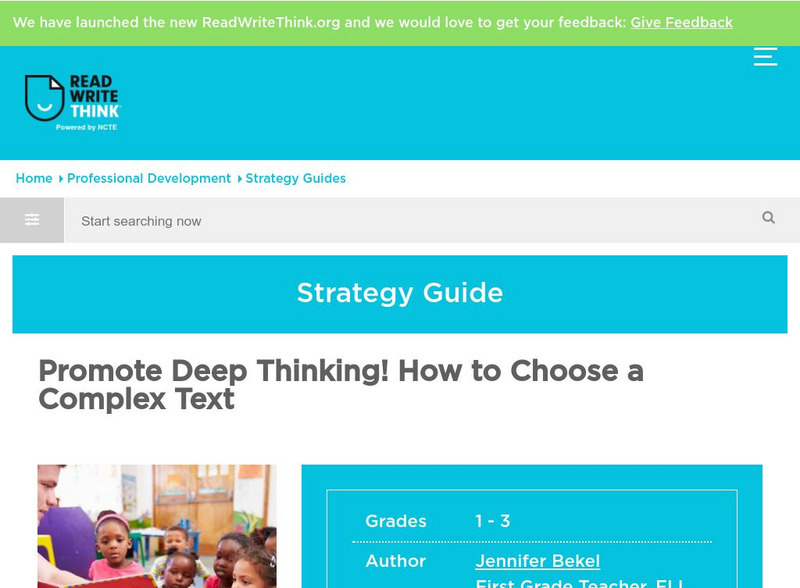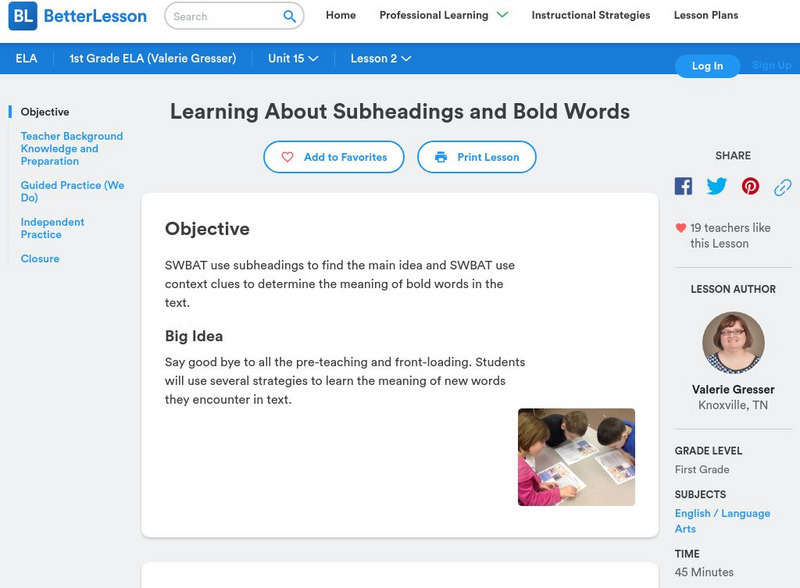Core Knowledge Foundation
Second Grade Skills Unit 6: The War of 1812
An English language arts unit closely examines spelling, grammar, reading, and writing skills. Scholars practice spelling patterns and tricky words. A read-aloud details the War of 1812 and introduces adverbs, and a close reading looks...
Core Knowledge Foundation
Second Grade Skills Unit 3: Kids Excel
The unit offers second graders skills practice in tricky spelling and words, grammar—nouns and punctuation, reading decodable texts, and writing a personal narrative. Lessons begin with a warm-up and go into a concept review, word work,...
ReadWriteThink
Living the Dream: 100 Acts of Kindness
Inspire kindness in and out of school with a lesson that challenges scholars to perform 100 acts of kindness during the time between Martin Luther King Jr. Day to Valentine's day. Leading up to a celebration of friendship, learners...
CoreCommonStandards.com
Common Core State Standards: Second Grade Workbook
You've hit the second grade Common Core jackpot! Find over 40 pages of curriculum designed specifically for the standards, both math and language arts. Printable versions of each standard can be used as learning displays, and attractive...
Scholastic
Helen Keller: An Inspiring Life (Biography Mini-Book)
Inspire young readers with this printable biography of Helen Keller. Including a timeline, glossary, and realistic illustrations with supporting captions, this is a great resource for not only teaching children about this amazing...
Curated OER
Who Would Win? Killer Whale vs. Great White Shark Storia Teaching Guide
Teacher guides are wonderful tools with tons of ideas that help you relate content in many different ways. Using the high-interest book, Who Would Win? Killer Whale vs. Great White Shark, learners hone their discussion and reading...
Curated OER
Using Text Features
Investigate a "table of contents" with your students! They read the table of contents in Deserts by Darlene R. Stille and predict where the answers to specific questions might be found. Learners complete a worksheet in which they find...
K20 LEARN
Let's Mail Away!: Writing Letters
Scholars watch a video or listen to a story about writing letters, then discuss their importance. A scavenger hunt challenges them to identify common elements of friendly letters and create an anchor chart. Pupils write letters to a...
Newspaper Association of America
Community Connections with Geography and the Newspaper
Understanding geography and government begins at the local level. Using maps and the parts of a newspaper, a unit plan introduces the concept of community. It starts with the creation of classroom and school maps, and then moves through...
Fluence Learning
Writing Informational Text: Community and School Gardens
Two informational texts feature community gardens of the past and present and how seeds grow. Scholars read, discuss what they have read, complete a timeline, define words, and compose a brief essay about the texts' main idea.
National Council of Teachers of English
Acrostic Poems: All About Me and My Favorite Things
Budding poets create two acrostic poems, one for their name and another using a word of their choice. Over the course of five days, scholars compose, revise, publish, and share their work with their peers.
United K12
Jan Brett Author Study
Expose young children to the wonderful works of author and illustrator Jan Brett using a few of her stories such as Armadillo Rodeo, The Mitten, or Daisy Comes Home through a unit study.
Curated OER
The Seven Continents Scavenger Hunt
Who doesn't enjoy an engaging scavenger hunt? Here, scholars listen to, and discuss, the informative text, Where is my Continent? by Robin Nelson. They then explore the seven continents and four major oceans using Google Earth.
National Geographic
Animal Habitats
Explore animal habitats and reinforce speaking, listening, reading comprehension, and writing skills with a unit that focuses on the Arctic, desert, ocean, prairie, and rainforest. Enthusiastic scientists read informational text to...
Really Good Stuff
Nonfiction Text Features Poster Set
Identifying nonfiction text features is a skill students can take to any subject. A packet of posters demonstrate different text features that learners would encounter in a textbook or informational article, encouraging pupils to think...
Lerner Publishing
Meet the Dinosaurs
Take your class of youngsters on a prehistoric adventure with this four-lesson series on dinosaurs. Accompanying the Meet the Dinosaurs books by Don Lessem, these lessons engage children in writing their own dinosaur books, making...
Ideas From Suzi
Guided Reading: Beyond the Basics
Elevate children's reading comprehension skills with this collection of guided reading resources. From paper dice with basic comprehension questions printed on them to a system for using sticky notes to identify key parts of a story,...
Curated OER
A Season for Chapters
Art, music, poetry, and the beauty of the seasons is what you'll find in this very nice unit idea. You can use any of the suggested books and activities to engage your second graders in an exploration of the changes that take place...
Curated OER
Glossaries
Explore text structure with a focus on the glossary feature in informational texts. Learners read a brief introduction before examining a glossary from a text about plants. They reference it while completing four comprehension questions....
Curated OER
Graphing Memories
Mem Fox’s Wilfrid Gordon McDonald Partridge provides the labels for a graphing activity. Class members create an illustration of a memory item brought from home, and place their illustration in the proper column of a graph. When the...
Curated OER
Glossary
Show your class how they can use a glossary to determine the meaning of an unfamiliar word. A book about the great emperor penguin is used to hone in on vocabulary development through the use of context clues and the glossary found at...
Read Works
Read Works: Passages: Making a Storyboard
[Free Registration/Login Required] Students read a nonfiction text about a girl whose aunt is a children's book author and answer questions about comprehension, sequencing, supporting details, main idea, vocabulary, and more. Links to a...
ReadWriteThink
Read Write Think: Promote Deep Thinking! How to Choose a Complex Text
This is a strategy guide to determine if reading material is complex and therefore, worth a close reading. It offers a list of quantitative, qualitative, reader characteristics/task consideration measures of text complexity.
Better Lesson
Better Lesson: Learning About Subheadings and Bold Words
In this lesson, students will use several strategies to learn the meaning of new words they encounter in text. The students will learn specific strategies so when they encounter new words, they can figure out the meaning of those words...



